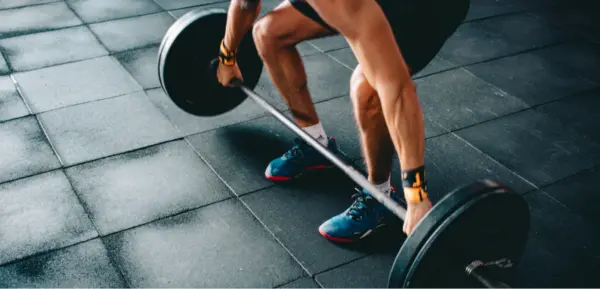For most people a good workout involves pushing yourself a little harder to get a little stronger. After you exercise, the body goes about its recovery process to heal and grow muscle. This recovery cycle is critical to your muscle improvement and the building of strength. Not allowing adequate recovery time can cause serious injury. This is why most athletes alternate between cardio, upper body, and leg days. Once the recovery cycle is complete, your body has built the new muscle mass it needs to do harder training.
In some cases, this recovery process does not happen. Instead of experiencing a little weakness while you recover, and then regaining your strength, you can actually end up weaker than when you started. This is usually coupled with significantly longer recovery times from workouts. Instead of days or weeks of recovery, it can take up to 3 months to recover. In these cases, you are usually less capable than you were before. These rare cases are referred to as “Overtraining syndrome” or OTS.
Overtraining syndrome is not the same as overexerting or simply hurting yourself. Most overexertion injuries are sprains or tears in the muscles and ligaments and can be corrected with ice, and rest. Whereas individuals with OTS are dealing more with extreme fatigue or serious underperformance in their sport. People with OTS also tend to also have unusual variations in their hormones and mood.
Currently there is no direct way to diagnose OTS. Your doctor would have to check for conditions like anemia, thyroid problems, and many other conditions that could be causing you to not recover properly. Once they have made sure that you do not have one of those other issues you can be diagnosed with Overtraining Syndrome.
Researchers have been trying to pin down the exact causes of OTS for over a decade with limited success, but recently there have been some advancements. A study published in 2019 by researchers from the Federal University of Sao Paulo in Brazil was able to link three specific dietary deficiencies to instances of OTS. The science team found that many of the athletes who were diagnosed with OTS were either lacking in carbohydrate intake, protein intake, or were not getting enough calories in general.
The dietary requirements of professional athletes are a little different than the average person or exercise enthusiast. Most of us are fine with consuming about 2,000 calories a day. Whereas Olympic swimming champion Michael Phelps has to consume about 12,000 calories a day to meet his training needs. This difference is why the science team looked at each athlete’s body mass index and activity level to calculate how much of each nutrient they actually need during training. Using these calculations, they found that the athletes were lacking nutrition in at least one area, and were able to conclude that nutrition contributed, at least partly, to OTS.
There is still more research that needs to be done on OTS. Much of what has been discovered can not help a doctor diagnose you for OTS but it can help you prevent it.
If you want to make sure that your nutritional needs are meeting your activity level, you can consult with one of our registered dietitians in Chicago (virtually via our telehealth platform or in person) by calling us at (312) 374-5399 or by scheduling an appointment online. Remember to also check out our Facebook, Instagram, and Twitter pages for more fun facts and articles on nutrition, physical therapy, and exercise!
Written by Alexander Franz
Reviewed by Morgan Murdock, RD.
REFERENCES
https://www.ncbi.nlm.nih.gov/pmc/articles/PMC6751688/
Cadegiani, F. A., & Kater, C. E. (2019). Novel causes and consequences of overtraining syndrome: the EROS-DISRUPTORS study. BMC sports science, medicine & rehabilitation, 11, 21. https://doi.org/10.1186/s13102-019-0132-x
https://www.ncbi.nlm.nih.gov/pubmed/23247672/
Meeusen, Romain, et al. “Prevention, Diagnosis, and Treatment of the Overtraining Syndrome: Joint Consensus Statement of the European College of Sport Science and the American College of Sports Medicine.” Medicine and Science in Sports and Exercise, U.S. National Library of Medicine, Jan. 2013, www.ncbi.nlm.nih.gov/pubmed/23247672/.
https://qz.com/753956/how-olympic-swimmers-can-keep-eating-such-insane-quantities-of-food/
Looi, Mun Keat. “How Olympic Swimmers Can Keep Eating Such Insane Quantities of Food.” Quartz, Quartz, 10 Aug. 2016, qz.com/753956/how-olympic-swimmers-can-keep-eating-such-insane-quantities-of-food/.


